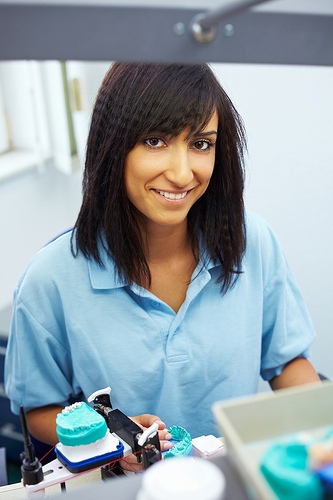What are dental crowns?
January 25th, 2024

A dental crown is often called a “cap.” A dental crown covers all of the visible parts of the tooth and has many functions and reasons for placement.
There are several different types of crowns available at Weaver Dentistry. They vary in their material, appearance, and functionality. A PFM, or porcelain fused to high-noble metal, is the most common. A full cast, high noble metal crown is a gold crown, and a stainless-steel crown is meant to be temporary. The most natural-looking crown is one that is all porcelain. These are often used for front teeth.
Getting a crown typically requires two appointments. The first is a preparation with impressions, shaping, and placing a temporary. The impressions are either sent to a dental lab, where the process generally takes two weeks, or done in-office with a machine that can make a crown without needing a second appointment. These crowns are made from a high-quality solid block of porcelain. The shape of the tooth is constructed from a digital 3D image of your tooth.
To accurately determine which type of crown is best, you must first know why you need the crown and in what area of your mouth is it needed, which can be answered when you visit us at Weaver Dentistry. For instance, if you have a gold crown on the lower right and need a new crown directly above on the upper right, the best durability and long-lasting relationship is another gold crown.
If you need a crown on a front tooth, a gold crown may not be the best choice. A PFM has strength but is not ideal, as a dark line will appear at the gum line. A full porcelain crown is going to look as close to a natural tooth as possible, but will have less strength than a gold crown.
There are two types of porcelain crowns, depending on how they are made. A dental lab makes a full porcelain crown by baking layer upon layer to make the porcelain look like natural enamel. A full porcelain crown made in-office out of a solid piece of porcelain will have increased strength. However, the natural layered appearance is extremely difficult to achieve.
A crown is placed on a tooth when added strength is needed. Cracks, large broken-down fillings, or previous root canal treatment are all conditions where a crown is the standard care. The type of crown that is most appropriate depends greatly on location.



